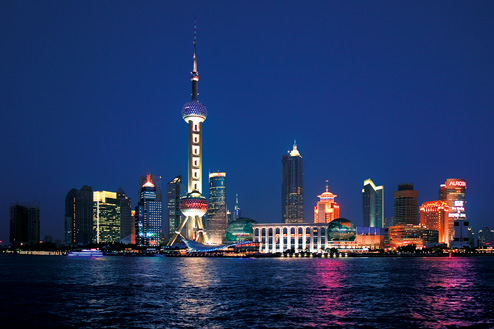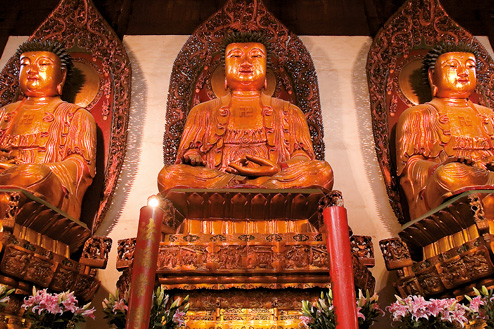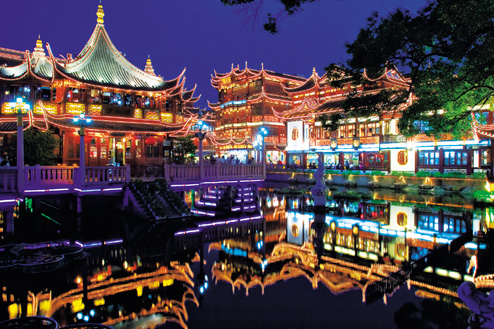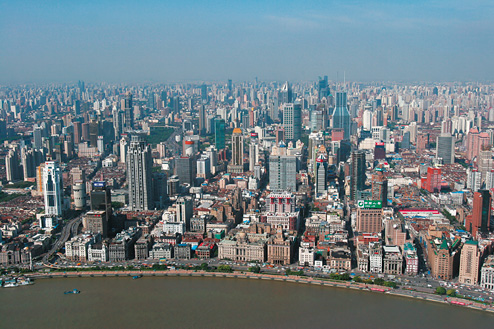Culture
If Beijing is China’s brain and Guangzhou its guts, then Shanghai is most definitely the country’s heart. Pulsing away with 24 hour electric energy, the city is a melting pot of different ethnic groups, both domestic and international, the majority with the same main goal: to make some cash. Money has long since taken over from religion or politics as the predominant force shaping the culture of Shanghai, and evidence of this can be found everywhere: from the western businessman flashing his gold card at one of the city’s high-end bars to the local girl proudly showing off her new Jimmy Choos, all the way down to the migrant worker embarking on yet another all-nighter in the hope of making a few extra yuan to send back to his family in the countryside. People from every corner of both China and the globe migrate here in the belief that, no matter who you are, enough hard work will lead to a bigger bank balance and a higher social position.
This constant influx of people from different backgrounds has created a culturally diverse landscape within the city’s 20 million-plus population. Domestically, aside from the born-and-bred Shanghainese, there is a substantial presence of people from regions as widespread as Xinjiang in the far west, Inner Mongolia in the far north and Guizhou in the deep south, while large European, American, Australian and Korean communities give the city a truly international feel.
These local and expat communities live in what could justifiably be called a state of happy mutual exclusivity. Unlike in Beijing, where members of both groups can be found sharing a dancefloor, Shanghai’s nightspots tend to cater either for one or the other. Within the domestic community there are further segregations, the Shanghainese being notoriously cliquey. The international population is more cosmopolitan, with different nationalities mixing on a social and residential level.
Occasionally tensions between locals and foreigners can be felt (a taxi driver refusing to take a foreigner is not uncommon). Generally, however, Shanghai remains a harmonious city, with the ‘money-making foreigners’ who were booted out during the Communist revolution of the 1940s and 50s being increasingly welcomed back. This change in attitude of both authorities and locals can especially be seen in Shanghai where many foreign enterprises have invested large amounts of money into China and have offered locals well-paid jobs, granting them entrance into an ever-expanding middle class. In business particularly, both foreigners and locals are realising the great financial and social benefits that a mutually friendly relationship can bring.
One aspect of traditional Chinese culture that endures is the concept of ‘family’. Of higher importance than the individual, the family is considered to be the smallest unit in society, with all members expected to act as part of a larger single whole. Families generally remain close and even after marriage children will often continue to live with their parents; in poorer families especially, three or even four generations can be found living under one roof. Children, having come of age, are traditionally expected to look after parents and grandparents in their old age. The pressures on a young Chinese man are particularly demanding since, once married, he will be expected to provide not only for his own family but also for the parents of his new bride.
This constant influx of people from different backgrounds has created a culturally diverse landscape within the city’s 20 million-plus population. Domestically, aside from the born-and-bred Shanghainese, there is a substantial presence of people from regions as widespread as Xinjiang in the far west, Inner Mongolia in the far north and Guizhou in the deep south, while large European, American, Australian and Korean communities give the city a truly international feel.
These local and expat communities live in what could justifiably be called a state of happy mutual exclusivity. Unlike in Beijing, where members of both groups can be found sharing a dancefloor, Shanghai’s nightspots tend to cater either for one or the other. Within the domestic community there are further segregations, the Shanghainese being notoriously cliquey. The international population is more cosmopolitan, with different nationalities mixing on a social and residential level.
Occasionally tensions between locals and foreigners can be felt (a taxi driver refusing to take a foreigner is not uncommon). Generally, however, Shanghai remains a harmonious city, with the ‘money-making foreigners’ who were booted out during the Communist revolution of the 1940s and 50s being increasingly welcomed back. This change in attitude of both authorities and locals can especially be seen in Shanghai where many foreign enterprises have invested large amounts of money into China and have offered locals well-paid jobs, granting them entrance into an ever-expanding middle class. In business particularly, both foreigners and locals are realising the great financial and social benefits that a mutually friendly relationship can bring.
One aspect of traditional Chinese culture that endures is the concept of ‘family’. Of higher importance than the individual, the family is considered to be the smallest unit in society, with all members expected to act as part of a larger single whole. Families generally remain close and even after marriage children will often continue to live with their parents; in poorer families especially, three or even four generations can be found living under one roof. Children, having come of age, are traditionally expected to look after parents and grandparents in their old age. The pressures on a young Chinese man are particularly demanding since, once married, he will be expected to provide not only for his own family but also for the parents of his new bride.













